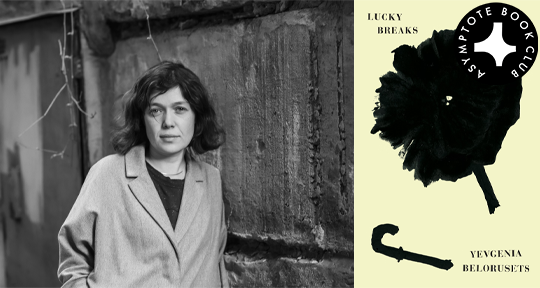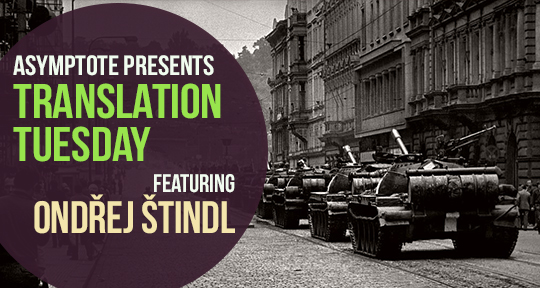This piece, a war diary by Kharkiv native Andrii Krasnyashchikh translated from the Russian by Matthew Hyde, marks the conclusion of Asymptote‘s We Stand With Ukraine Series. Over the course of the series’s run, we have brought together translations and original English-language compositions from around the world. Collectively, these pieces report on the war from the ground and examine the voyeuristic feeling of following it from afar; they comment on the latest developments and put them in dialogue with other conflicts from history. Above all else, they are an expression of solidarity with the victims of this war and a call for an end to the violence.
Mother Says
Translator’s note: Andrii Krasnyashchikh writes from his hometown of Kharkiv, a town of literary renown, as Russian bombs fall. The added tragedy of the situation is that history is repeating itself, in a distorted form. Much of Kharkiv was reduced to rubble in World War II; now Andrii’s mother says: ‘they’re worse than the fascists.’ The other bitter irony is that Andrii is a Russian-speaking Ukrainian, a representative of the ‘Russian World’, whom Russia has supposedly come to liberate. In his sparse, tense style, Andrii documents the reality of life in a town under bombardment, everyday mundanities offset against the ever-present, terrifying backdrop of war. But hope is not yet lost, and humour is one of the coping mechanisms; Andrii’s daughter finds an anecdote on the internet in which Putin returns to earth from hell, only to find that wherever he goes he is charged in the Ukrainian currency, the hryvnia; the whole world is Ukrainian now.
—Matthew Hyde
Kharkiv, March 2022.
Mother says: they’re worse than the fascists.
She was born in 1946, she doesn’t remember the war. My father remembers, he was born in 1940. He talks about the missile which hit their house, how he and his brother fled through a field, how a bomb fell right next to them. He remembers plenty from the war.
Mother talks about her granddaughter, about when she was little, how she’d say ‘tyup’ instead of ‘soup’. Her granddaughter’s not so little now—ten years old already, she’s sure to remember this war.



